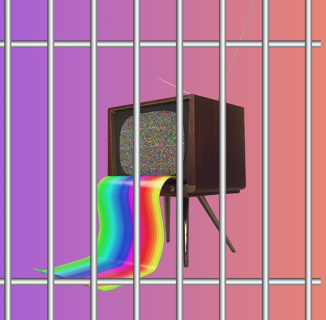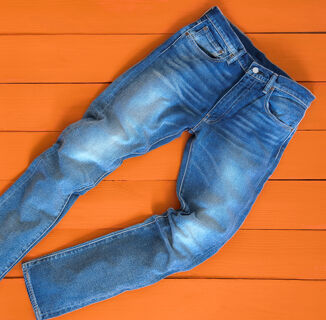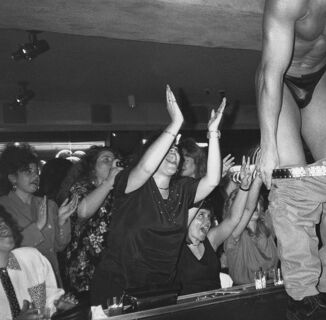I’ve finally found my hill to die on.
While speaking on a panel Friday, suitlord Cate Blanchett defended straight actors’ right to play queer roles, which is a bold statement from a straight, but as we’ve come to find, The Nerve of Hets knows no bounds. Blanchett, who notoriously fronted the Oscar-nominated lesbian film Carol in 2015, told the crowd that she’s often asked by the media if she needs to be queer to play gay.
The actress said, “It also speaks to something that I’m quite passionate about in storytelling generally, but in film, specifically, is that film can be quite a literal medium. And I will fight to the death for the right to suspend disbelief and play roles beyond my experience. I think reality television and all that that entails had an extraordinary impact, a profound impact on the way we view the creation of character.”
First of all, I think it’s beyond non-LGBTQ people’s reach to make any sort of broad statements about what LGBTQ should and shouldn’t be OK with — even if they’re allies, even if they stay ruling the Land of Lady Suits from an Iron Throne. No matter what, a straight person saying “I should be able to play queer” is going to come off as condescending and cavalier, because it is. It’s not your place to decide, period. However, it maybe is my place, as an out lesbian entertainment writer, to decide, so hear me out.
Let Cate Blanchett play gay. I’m not saying “Let straight people play queer characters.” I’m saying let specifically Cate Blanchett play gay. I think, just like everything LGBTQ, a spectrum exists as to who should be allowed to play what roles within the community. I’d place cisgender actors playing transgender roles at the staunch “no fucking way” end of the spectrum. Hollywood has a major issue with representation for trans people, and they remain significantly less represented in film and TV than lesbian, gay and bisexual people. According to GLAAD, there were zero transgender characters in mainstream studio films in 2017.
The trans experience is a delicate, nuanced and specific one that needs to be told by trans voices — no excuses. We need more trans actors at the forefront of Hollywood, telling and fronting their own stories. For that reason, I totally supported the public shaming of Scarlett Johansson, who accepted a role as a transgender lead in Rub & Tug, and was subsequently bullied out of it. Good job, Twitter. Never change.
So, if one side of the spectrum is “No cissies in trans roles,” I’d place “Cate Blanchett can play gay” on the polar opposite side. I think Blanchett plays a very convincing queer woman, and fuck it, I’ll say it: she’s not hard to watch. Please don’t take Cate Blanchett in gay roles away from me! This is all I have. I want to watch her give Rooney Mara sweet lady kisses in mad sus hotels. I want to watch her openly hit on Sandra Bullock in Ocean’s 8. I need more glove lunches, more scamming, more three-piece suits tailored delicately to her angular frame, more photos of Kristen Stewart lusting after her at Cannes, more photos of her in pastel suits on red carpets that I screenshot faster than the speed of lightning to co-opt as a phone background — I need MORE, MORE, MORE!
Cate Blanchett is a rare straight stone who is cherished by the queer female community. If you take Cate Blanchett away from gay women, we will have nothing. NOTHING! Taking Cate Blanchett away from queer women would be like robbing straight women of Chris Hemsworth, and yes, this isn’t the same thing at all because Chris Hemsworth has nothing to do with the marginalization of queer women, but can you picture a straight world without Chris Hemsworth? Marvel executives would drop dead. Straight women would take to the streets. It would be violent. It would be like the second coming of the plague. Similarly, if Cate stops playing queer, there will be gay riots. I don’t want to imagine a post-apocalyptic, dystopian world in which we don’t allow Cate Blanchett to play gay.

With all that being said, queer representation in Hollywood is predominantly an issue of marginalization — queer female stories are consistently buried and silenced, even when gay male stories find the mainstream limelight, like Love, Simon or Call Me By Your Name recently have. I think, specifically in regards to straight people playing queer characters, it’s less of an issue of experience — because if the actor plays it empathetically, compassionately, and realistically, like Blanchett certainly did in Carol — it can work. The real issue with straight actors who aren’t Cate Blanchett playing gay is simply representation.
The harsh reality is that there still just aren’t many leading queer roles for women, and when there are, the roles are given to movie stars like Suit Blanchett. In order to inspire real change and actually flip Hollywood on its back, we need to look at the whole picture: Why aren’t there more queer female “movie stars,” as in, women like Kristen Stewart who can pull big numbers at the box office? How do we elevate out queer women into superstardom, so that when a role like Carol comes along, she can snag it? We need to elevate more out queer actresses, and we need to give them more opportunities to anchor queer narratives.
And at this point, giving straight actors the chance to play queer roles before queer actors just feels unfair. Gay male actors have been shamed into silence since the dawn of Hollywood. So, in August, when straight actor James Whitehall was cast in a monumental gay role in a Disney movie, Twitter tore him to shreds — and rightfully so. For gay male actors who have suffered in silence over the last couple decades, it probably felt like a slap in the face that some straight dude was given the chance to play a trailblazing, mainstream gay role. So, on the spectrum of “no cissies in trans roles” to “Cate Blanchett,” Jack Whitehall falls somewhere toward the former, for me.
I realize this may sound hypocritical — unfortunately, things just aren’t as black and white as we might hope. I think some of these instances of straight actors playing queer are case specific, like Cate Suitborn of the House Blanchett. Rachel Weisz, who played queer in both Disobedience and The Favourite this year, infused both roles with the vast amount of empathy and compassion that each one called for. Emma Stone, who also played queer in The Favourite, played lesbian icon Billie Jean King in last year’s Battle of the Sexes. Personally, I don’t think she captured the queer experience as well as actresses like Rachel Weisz or Cate Blanchett have, nor do I think Weisz’s Disobedience co-star, Rachel McAdams did. Maybe that’s my personal preference or bias, but those are my own experiences with these films.
So, I’m totally fine dying on the hill of “Let Cate Blanchett pretend to be gay.” If that makes me problematic, then that’s my cross to bear. I will use my lesbian body as a human shield to protect Cate Blanchett for as long as I possibly can. Here’s to praying she doesn’t say anything else problematic, as my gay body is actually very weak and fragile, and its only fuel is professional photographs of Cate Blanchett looking gayer than a Los Angeles Prius dealership.
Help make sure LGBTQ+ stories are being told...
We can't rely on mainstream media to tell our stories. That's why we don't lock our articles behind a paywall. Will you support our mission with a contribution today?
Cancel anytime · Proudly LGBTQ+ owned and operated
Read More in Culture
The Latest on INTO
Subscribe to get a twice-weekly dose of queer news, updates, and insights from the INTO team.
in Your Inbox














